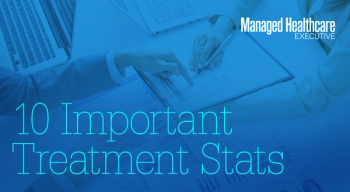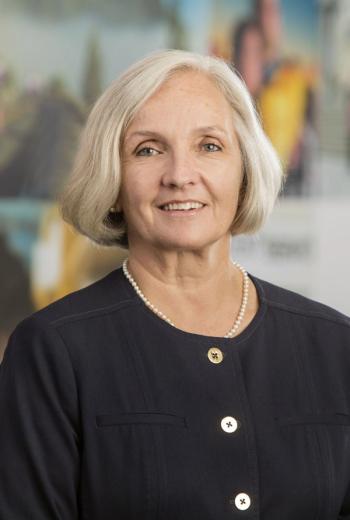
If it's true that a picture is worth a thousand words, the same can be said for numbers. For any healthcare executive, a look at relevant statistics can be revealing. Here are some of the top stats to know.

If it's true that a picture is worth a thousand words, the same can be said for numbers. For any healthcare executive, a look at relevant statistics can be revealing. Here are some of the top stats to know.

Researchers and scientists continue to develop and test new treatments for these fatal conditions. Here’s a look at some major developments in these areas.

When it comes to promising areas in the treatment of lymphoma and other blood cancers, gene therapy may be at the top of the list. Here’s why.

Two oncology practices have wish list items for payers. Find out what they are.

In this era of precision oncology and targeted therapies for cancer, it’s even more important to include different populations when doing clinical trials. Here are three effective strategies.

Researchers say two new related study findings represent a potential new way to identify pancreatic cancer at an earlier stage. Read more.

FDA’s approval of an expanded indication for a prostate cancer drug could net 2 pharmaceutical manufacturers billions of dollars.

Pharma makers are voluntarily recalling several drugs containing this active ingredient, used to treat high blood pressure and heart failure, since they may contain a carcinogen.

A pharma maker is under fire for raising prices on its cancer drugs. Meanwhile, there were two major cancer drug approvals in June. Here are the top 3 cancer news articles in the past month.

Gwen Nichols, MD, chief medical officer of the Leukemia & Lymphoma Society, offers a quick overview of current developments as well as a look forward.

What does team-based cancer care done right look like? Here are two real-word models worth emulating.

A combination melanoma treatment that was just approved by FDA is available through select specialty pharmacies.

A new study investigates whether PET scans can help guide treatment in patients with aggressive non-Hodgkin lymphomas.

A lymphoma expert from the Allegheny Health Network Cancer Institute reveals the status of current and pipeline lymphoma treatments and the three new treatments healthcare executives need to keep on their radar.

New Cardinal Health Specialty Solutions research shares inside information about oncologists’ views about targeted therapies.

The manufacturer of bevacizumab (Avastin), snagged FDA approval for yet another type of cancer.

FDA approved the first biosimilar to Neulasta, as well as a new combination treatment for osteoarthritis pain and hypertension and a new drug to treat chronic lymphocytic leukemia.

The manufacturer of two cancer drugs hiked the price on the medicines despite President Donald Trump’s new plan to lower drug prices.

A study evaluated how treating military veterans with HCV early impacted their risk for non-Hodgkin lymphoma and various other diseases.

Treating patients with cancer is often challenging yet rewarding work. But caring for patients in an urban setting, where some patients don’t speak English and other patients aren’t fully insured and possibly facing significant financial challenges.

Can you identify the latest developments related to the treatment of blood cancers? Test your knowledge.

Here’s how community oncologists seize opportunities to improve the quality of care and create performance metrics.

Montefiore Medical Center in Bronx, New York, is participating in CMS’ oncology care model, a value-based payment arrangement. Find out what new group of staff members is helping it succeed.

Analysis from Avalere shows why healthcare execs should understand how oncology practices are evolving in response to the OCM.

The Center for Blood and Cancer Disorders in Fort Worth, Texas, is participating in many value-based contracts. Here’s how it is successful.